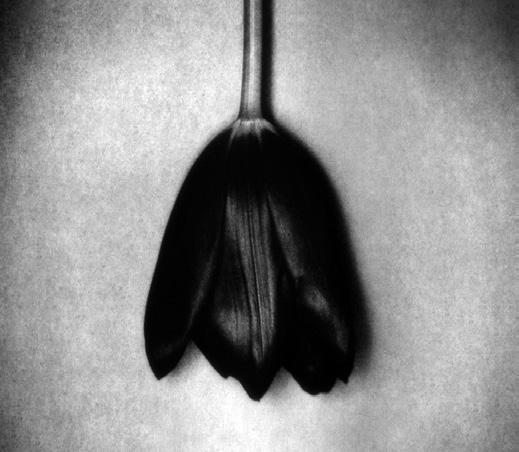
4 minute read
Love, Poverty, and War: Journeys and Essays – Vianca Yohn
Book Review >>> Vianca Yohn Love, Poverty, and War: Journeys and Essays
Christopher Hitchens. New York: Nation Books, 2004. 475 pp.
Love, Poverty, and War: Journeys and Essays is a collection of Hitchens’s essays, literary introductions, and articles organized into four sections: “I. Love,” “Americana,” “II. Poverty,” and “III. War.” Hitchens explains this organization in his introduction: “An antique saying has it that a man’s life is incomplete unless or until he has tasted love, poverty and war” (xi); notably, however, the “Americana” section was included in the book yet exempt from numbering, presumably to emphasize Hitchens’s love for the country even as he criticizes it. A British-American immigrant, Hitchens shares his experiences as a journalist and patriot via introductions to books by authors he admires, memoirs of his personal travels, and criticisms of political and religious figures. Through these tidbits, we learn that he is close friends with Salman Rushdie, has driven the entirety of the famous Route 66, and bravely questions the legacies of such revered figures as Mother Teresa and Winston Churchill (among others). While it may be true that most books were meant to be read cover-to-cover, however, this particular collection is almost too varied to read this way, and may be better appreciated when read selectively based on the reader’s interests. The first section of the book consists largely of introductions to and reviews of books, though Hitchens also includes some of his contributions to noted periodicals such as the Atlantic. For a reader unfamiliar with Winston Churchill, Leon Trotsky, Rudyard Kipling, and other political and literary figures, the “I. Love” section can be a bit challenging; Hitchens’s reviews tend to rely on the reader’s preexisting knowledge of many of the figures he discusses. With a little research, however, this particular section is navigable for a newcomer, and scholars who are already well-versed in these figures will probably enjoy Hitchens’s passionate reviews. The remaining three sections rely less on academia and more on popular culture, making them somewhat more accessible to the average American reader. For instance, in our culture, images of Sunset Boulevard, Route 66, New York City, and Ground Zero are iconic, and Hitchens explores these and more in “Americana.” Likewise, it is probably safe to say that many Americans have heard of Michael Moore, Mel Gibson, or Mother Teresa, some of whom serve as the subjects of his essays in “II. Poverty” – and all of us have been touched by war in some way, particularly after the 9/11 attacks that are the centerpiece of “III. War.” While I probably will not read the book again anytime soon (at least not “I. Love” without first better familiarizing myself with the subjects therein), I must admit that it is not without its merits; his somewhat presumptuous writing style – at least, to a twentysomething who is ignorant of the finer details of British politics and many of the works of the
authors he reviews, among other subjects he addresses – lends itself well to inspiring further research into the events, people, and places whose names he throws around as casually as most of us do “likes” and “ums.” (If you are in need of a pick-me-up and have this book onhand, here is a game you can play: for every “obvious” point Hitchens makes that is, in fact, far from obvious, grab a cookie or other treat of choice. You may regret it later, but it makes the reading more enjoyable, especially if you do not have the knowledge base you need to understand Hitchens’s finer points. I still feel compelled to grab a handful of chocolate chips whenever I try to figure out how “felt very badly” is a “barbarous neologism” [84], which Hitchens does not feel he has to explain.) Also, stylistic idiosyncrasies aside – such as spelling out “aitches” (74) in one essay and then simply using the letter “h” in another (146) – Hitchens does have a sense of humor that relies on wordplay, with the title of one of his essays, “Unfairenheit 9/11: The Lies of Michael Moore” one of the easiest instances to locate. To be fair, Hitchens is clearly unconcerned with making friends, which – at least, as far as he would care – renders my earlier objections to his pedantic undertones moot. As a self-proclaimed, radically liberal, anti-theistic polemicist, Hitchens’s sole concern is to share his opinions, observations, and experiences as frankly as possible – readers’ hurt feelings be damned. And, love him or hate him, it is difficult to argue that he does not make at least a few poignant and universal points, such as this gem from the aforementioned essay on Churchill, “The Medals of His Defeats”: “We seem to have a need, as a species, for something noble and lofty. The task of criticism could be defined as the civilizing of this need – the appreciation of true decency and heroism as against coercive race legends and blood myths” (28). Whether a literature or social science aficionado, a reader with a strong background in French and an interest in the humanities may find an essay in Love, Poverty, and War worth reading, though again, I personally would not recommend the book as a front-to-back read.




